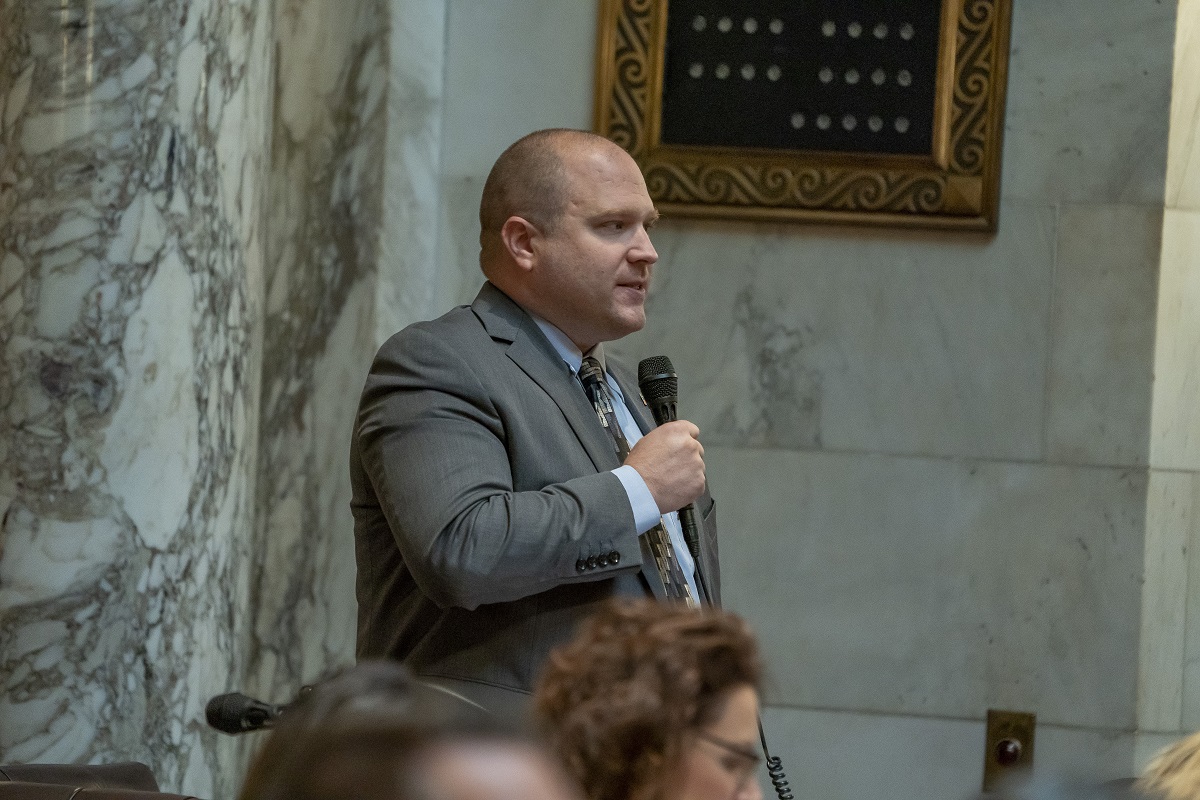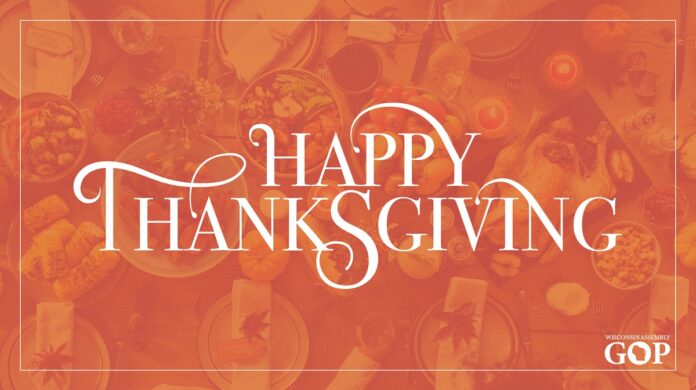Happy Thanksgiving!
I hope everybody has a wonderful Thanksgiving! Although I love spending the day with family and enjoying the many blessings given to us by God, I also like to take some time to share the story of how Thanksgiving became a holiday. Do you know the true reason why we celebrate Thanksgiving? There is more to the day than just delicious food (although I enjoy that part a lot too)! If not, don’t fret! Here is a short recap of the history of the holiday.
When the Pilgrims first arrived in the New World in 1620, they did not immediately seek out fellowship with the Indians. Because the land was bountiful, they decided to share everything among themselves collectively, like socialists. When the Pilgrims started dying of starvation due to a lack of effort in the fields, a change was determined. Each family was then assigned a parcel of land to look after, which led to an increase in crop production and eventually the first Thanksgiving in 1621.
Thank goodness for that early course correction towards private property!
If you’re interested in learning more about that first Thanksgiving, here is a short YouTube video I recommend watching that accurately shares the history: This Thanksgiving, Say Thank You to “Private Property” – YouTube.
With that being said, I hope everybody has a safe and blessed Thanksgiving! As we celebrate, let us remember to give thanks for all we have to be grateful for as Americans. Enjoy your day celebrating in the company of family and friends, and take time to reflect on what you are appreciative of this year.
Session 11/14/2023

Protecting Your Privacy
AB 466 gives a consumer certain rights over their personal data and imposes certain obligations on any controller and processor of personal data.
This legislation aims to provide consumers with tools to manage what they rightfully own: personal data that can be used to identify them. It would allow consumers to ask data collectors what data they have that identifies them, who they have shared or sold that data to, and to request that they stop collecting or processing data and to correct inaccurate data.
Saving You Money and Improving Our Economy
SB 1 was put on the special calendar and taken up on the floor. This legislation states that beginning in the taxable year 2026, all individual taxpayers, regardless of their income, will pay the individual income tax at a rate of 3.25 percent. In addition, for taxable years 2023 through 2025, the bill decreases individual income tax rates each year for each tax bracket.
Although Special Session Senate Bill 1 passed in the Senate and Assembly, it was unfortunately vetoed by Governor Evers earlier this week. The purpose of this legislation was to help put more money in the pocketbooks of Wisconsin families to address the effects of inflation and increasing child care costs, and it was disappointing to see it vetoed.
To hear my full thoughts on SB 1, click here.
AB 62 affords dental patients with greater flexibility with respect to payment, aligns Wisconsin more closely with other states, and alleviates confusion with respect to billing statements.
AB 129 corrects an unforeseen loophole that exists in current law allowing a sentencing disparity to take place if a health care provider sexually assaults a patient, dependent upon current definition of healthcare provider.
AB 133 (SB 134) decreases the length of the Farmland Preservation Program contract between the farmer or landowner and DATCP from 15 years to 10 years.
AB 207 (SB 196) ratifies and enters Wisconsin into the Counseling Compact, which provides for the ability of a professional counselor to become eligible to practice in other compact states.
AB 208 (SB 197) ratifies and enters Wisconsin into the Audiology and Speech-Language Pathology Interstate Compact, which allows a speech-language pathologist or audiologist licensed in one member state to obtain a “compact privilege” to practice in a remote state without obtaining a license in that remote state.
AB 223 protects districts when using life-saving NARCAN (naloxone) products without creating a new unfunded mandate.
AB 242 (SB 248) clarifies the definition of “county of residency” to ensure the proper county is billed by a Managed Care Organization (MCO).
AB 251 allows certified marriage and family therapists to obtain a tier 1 license through the Department of Public Instruction.
AB 259 (SB 263) would require the Department of Health Services (DHS) to seek a waiver from the federal government to allow SeniorCare participants to purchase 100-day supplies for certain prescription drugs.
AB 261 (SB 259) is meant to clarify and exempt from the payday lending regulations transactions in
which no finance charge, and no other fees or charges of any kind, are required or accepted, at any time, from the person receiving the loan.
AB 271 (SB 267) establishes a grant program administered by the Department of Public Instruction (DPI) to annually award a grant of $500,000 to each eligible recovery school that applies for a grant.
AB 339 (SB 324) clarifies that no state or local building code may prohibit the use of an EPA-approved refrigerant so long as it is listed and installed in accordance with relevant safety standards.
AB 367 (SB 362) allows electronic delivery to be the default way to receive notices and documents from a health insurer or HMO.
AB 369 (SB 369) would allow municipalities to install a newborn infant safety device, also known as a baby box, at a hospital, fire station, or law enforcement agency building that is staffed 24/7.
AB 410 (SB 400) allows the State of Wisconsin to enter into the PA Licensure Compact.
AB 416 (SB 434) gets rid of the requirement for prior-authorization and a doctor’s evaluation and prescription in order to get repairs made on a specialized wheelchair if the patient is under Medicaid.
AB 431 (SB 419) expands the scope of practice for hearing instrument specialists to include the practice of cerumen management (removal of earwax).
AB 437 makes regulatory changes to the state’s insurance industry and provides technical changes to state statutes.
AB 443 (SB 440) requires the Department of Health Services to design a cremation permit application form.
AB 514 ensures that contracts between design professionals and public entities include only reasonable and insurable clauses.
AB 541 removes the barriers that stop individuals from getting the help they need and allows qualified mental health providers from other states to practice in Wisconsin via telehealth, alleviating the shortage.
AB 560 amends state statutes to allow judges discretion to allow for the use of videoconferencing technology during certain civil proceedings.
AB 566 (SB 527) requires the Department of Health Services to award grants, using federal funds from the community mental health services block grant, to local mental health organizations or coalitions for suicide prevention programming.
AB 573 utilizes funds already authorized in the 2023-2025 biennial budget to create a virtual crisis telehealth pilot program for Wisconsin.
AB 574 would establish regulation requirements for earned wage access (EWA) services in Wisconsin.
AB 575 requires each school board and charter school governing board to annually distribute its mental health plan to all school staff.
To hear my full thoughts on AB 575, click here.
AB 576 allows the Department of Justice (DOJ) to create a program that allows agencies to establish peer support and critical incident stress management (CISM) service teams.
AB 616 would direct the Department of Health Services (DHS) to seek approval from the federal government for an IMD (institution for mental disease) waiver for mental health services.
Committee on Sporting Heritage Public Hearing
Last Wednesday, the Committee on Sporting Heritage met and held a public hearing on two pieces of legislation.
AB 72 creates a resident lifetime fishing license and provides for the establishment of a lifetime fishing trust fund.
AB 270 requires the Department of Natural Resources to offer in-person and online hunter education for persons under the age of 18.
Committee on Labor and Integrated Employment Public Hearing
Last Thursday, I testified in committee on AB 612, a bill I wrote that expands on current state statute. Under ch. 252.04(3), Wisconsin offers K–12 students the right to waive any immunization requirements for reasons of health, religion, or personal conviction. In preserving their bodily autonomy, Wisconsinites have a right to decide what goes into their bodies. However, current law does not expand these protections to our college students or workers. This legislation expands this right to every Wisconsin employee and prospective employee.

In-District Events
Saturday, November 25th, will be the Redbird Holly Craft Faire at East De Pere High School (1700 Chicago St., De Pere) from 9 a.m. to 3 p.m.
Saturday, November 25th, will be the Two Rivers Christmas Parade of Lights in Downtown Two Rivers at 5:30 p.m.
Friday, December 1st, will be the Village Tree Lighting Ceremony in the Village of Wrightstown (104 High Court) from 6 to 7 p.m.
Saturday, December 2nd, will be Christmas in the Village of Mishicot from 9 a.m. to 2 p.m.
Saturday, December 2nd, will be De Pere’s Holly Day from 12 p.m. to 4 p.m. in Downtown De Pere (117 N Wisconsin St.)
Saturday, December 2nd, will be the Christmas Parade in the Village of Wrightstown. This event starts at 4:30 p.m., and the route will follow Fair to HWY 96.


